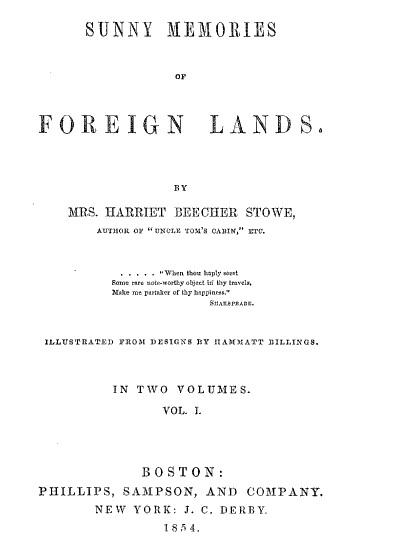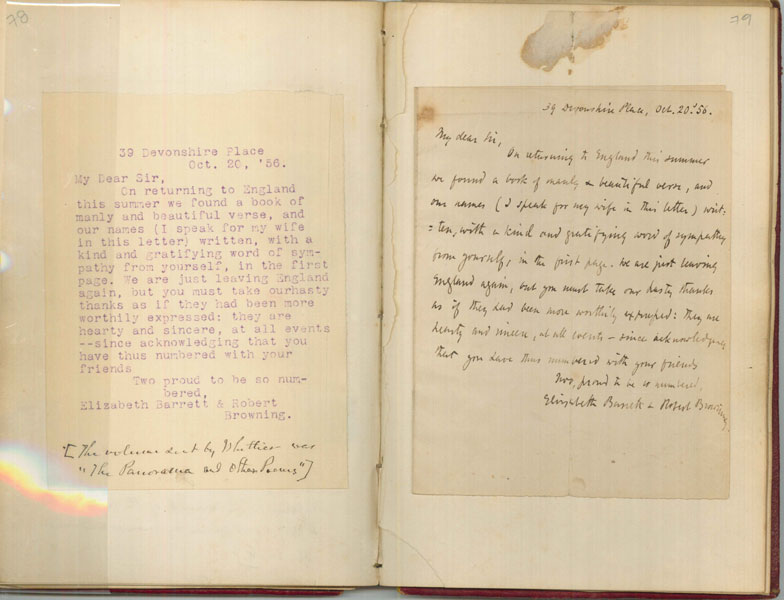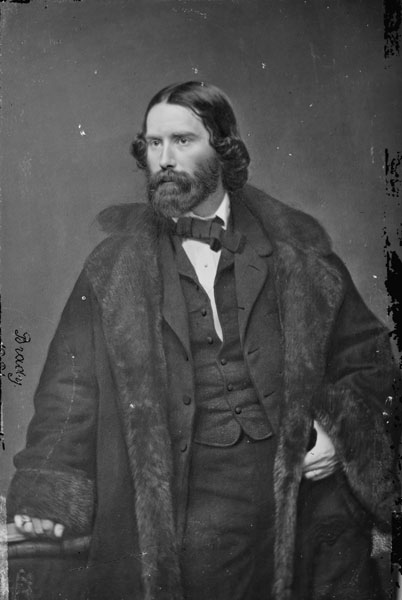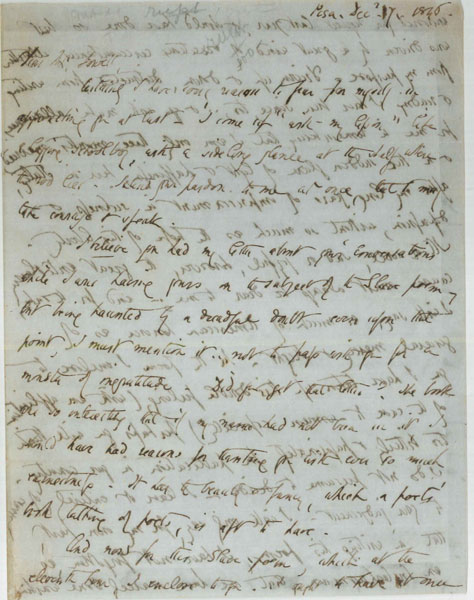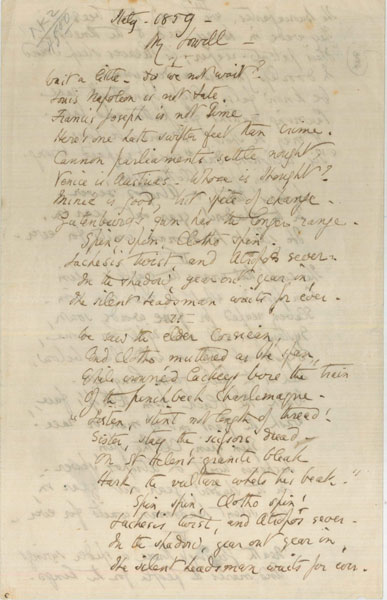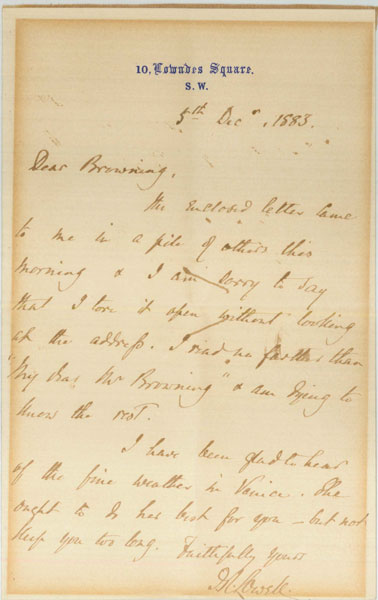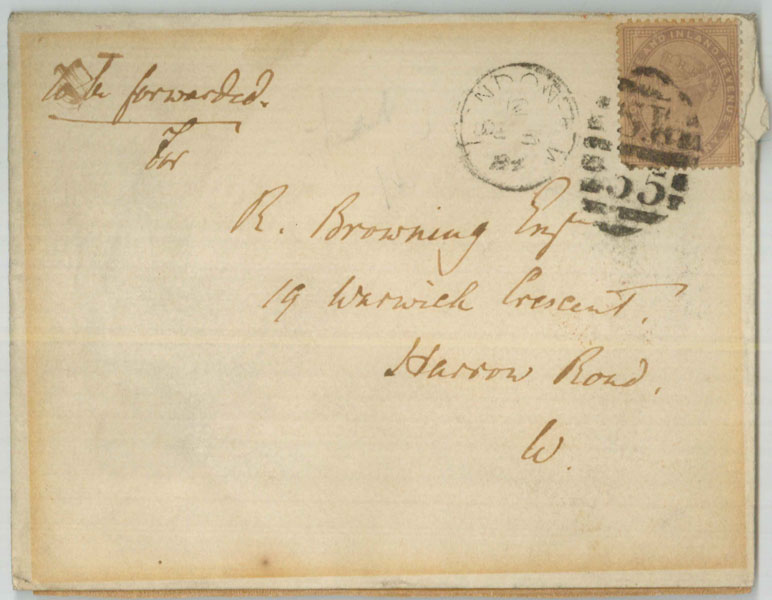 Harriet Beecher Stowe was an American abolitionist and writer, most well-known for her novel, Uncle Tom’s Cabin, a depiction of the lives of African Americans under slavery. She met Elizabeth Barrett Browning during a trip to England in 1856. In 1859-60 she traveled to Italy and became acquainted with the Brownings socially.
Harriet Beecher Stowe was an American abolitionist and writer, most well-known for her novel, Uncle Tom’s Cabin, a depiction of the lives of African Americans under slavery. She met Elizabeth Barrett Browning during a trip to England in 1856. In 1859-60 she traveled to Italy and became acquainted with the Brownings socially.
Letter from Elizabeth Barrett Browning to
Harriet Beecher Stowe. [?24 March 1860].
In this letter Elizabeth Barrett Browning assures Stowe that she is not ill with “typhus,” but would like to reschedule their meeting until Monday.
Harriet Beecher Stowe. Uncle Tom’s Cabin.
London: J. Cassell, 1852.
Stowe’s anti-slavery novel sold 300,000 copies in its first year of publication in 1852. In a letter to her friend Mary Russell Mitford, dated 15 March [1853], Elizabeth Barrett Browning writes of Stowe and her novel:
No woman ever had such a success, such a fame! No man ever had, in a single book. For my part I rejoice greatly in it. It is an individual glory full of healthy influence & benediction to the world.
Harriet Beecher Stowe. Sunny Memories of Foreign Lands [2 vols.]. Boston: Phillips, Sampson, and Company; New York: J.C. Derby, 1854.
Sunny Memories of Foreign Lands was an account of Stowe’s travels in Europe in 1853 written for an American audience. Elizabeth Barrett Browning, in a letter to Sarianna Browning on [18 September 1854], says she plans to read Stowe’s book:
[A]nd in the meantime Robert read aloud snatches caught out of the heart of it, to Isa Bladgen, Hatty Hosmer & me.
The Armstrong Browning Library’s holdings related to Harriet Beecher Stowe include more than a dozen books and one letter.

